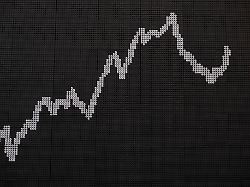Soaring continues
Hope for a pause in interest rates lifts the DAX to a record high
06/14/2023 12:29 p.m
The DAX remains at its record high and even increases again. This is primarily based on hopes for a less tight monetary policy in the USA. The forthcoming interest rate decision by the US Federal Reserve will be correspondingly exciting.
The DAX recently surpassed its record high of just a few weeks ago. Investors continue to bet on a pause in US interest rate hikes. It will be exciting in the evening when the US Federal Reserve’s interest rate decision is due. Most recently, the leading German index rose by 0.63 percent to 16,332.16 points. It thus expanded its previous annual plus to around 17 percent. The previous record was 16,331 points from May.
A large majority of market participants and economists expect on Wednesday that monetary authorities will initially pause after ten interest rate hikes in a row. “US inflation continues to cool, paving the way for the first pause in the Federal Reserve’s 15-month cycle of rate hikes,” wrote CMC Markets analyst Konstantin Oldenburger this morning.
Also keep an eye on the ECB
The prospect of a less tight monetary policy in the coming months is driving the leading German index further up in the run-up to the two central bank meetings, Oldenburger added. After the FED in the evening, the European Central Bank will also make its next decision on Thursday. In the case of Europeans, however, the market is assuming an increase of another 0.25 percentage points. Hopes that the ECB could soon take things a little easier were recently raised by inflation data from the euro zone. In May, the inflation rate in the euro zone surprisingly fell to 6.1 percent, although this is still well above the ECB’s target.
Interest rate hike pauses or even an end to the cycle of interest rate hikes are fueling investors’ hopes of better economic development. Because higher interest rates slow them down, as they make financing more expensive for companies and also make consumer and real estate loans more expensive.
